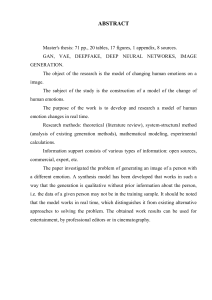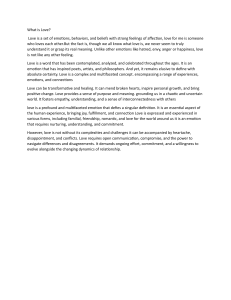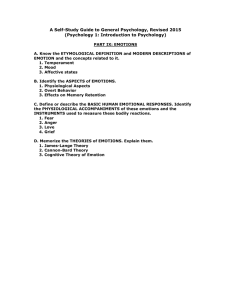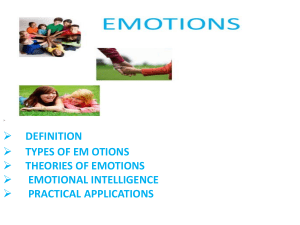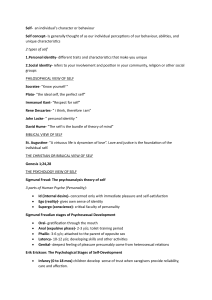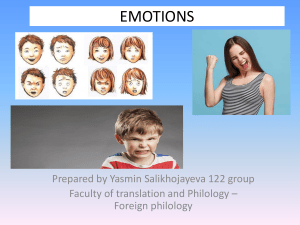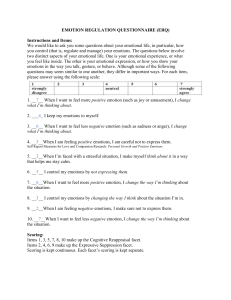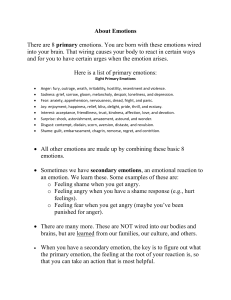Stress & Learning: Motivation, Emotions, and Self-Regulation
advertisement
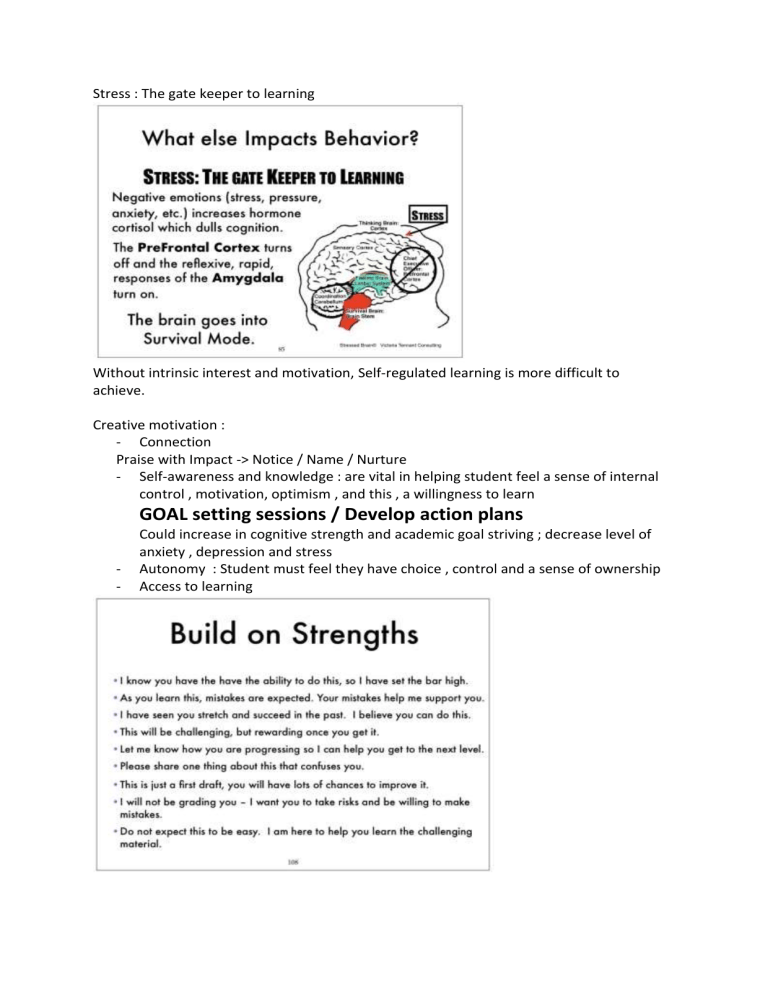
Stress : The gate keeper to learning Without intrinsic interest and motivation, Self-regulated learning is more difficult to achieve. Creative motivation : - Connection Praise with Impact -> Notice / Name / Nurture - Self-awareness and knowledge : are vital in helping student feel a sense of internal control , motivation, optimism , and this , a willingness to learn GOAL setting sessions / Develop action plans - Could increase in cognitive strength and academic goal striving ; decrease level of anxiety , depression and stress Autonomy : Student must feel they have choice , control and a sense of ownership Access to learning The gatekeepers of learning Emotions The first gatekeeper, the emotional state of a student, directly affects their ability to learn. If a student is engaged in learning within an environment that promotes a positive state of emotion, they will be better able to utilise long-term recall, for example. Conversely, a poor emotional state will disrupt their ability to learn or to be able to recall information from the lesson at a later time. While the emotional state of students can depend upon factors outside of the classroom, educators can seek to provide a learning enviroment that helps facilitate a postive experience for each student and therefore increase their ability to learn. Motivation "Like emotion, the presence of positive motivation towards a learning task markedly increases the likelihood that students will engage in deep learning" 1 Dumont et al propose that the role of the teacher should include providing the time, space and support for student reflection to determine the usefulness of learning strategies, as well as to provide positive support for those students who may have had negative learning experiences. In other words, teachers need to identify students' interests and help them to foster intrinsic motivation. The Basic Principles of Motivation2 Students are more motivated to engage in learning when they: Feel competent to do what is expected of them Perceive stable links between specific action and achievement Value the subject and have a clear sense of purpose Experience positive emotions towards learning activities Students direct their attention away from learning when they experience negative emotions. Students free up cognitive resources for learning when they are able to influence the intensity, duration and expression of their emotions. Students are more persistent in learning when they can manage their resources and deal with obstacles efficiently. Students are more motivated to enage in learning and use motivation regulation strategies when they perceive the environment as favourable for learning.
